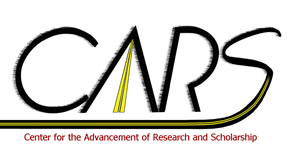The Good, the Bad and the Ugly…Take Two. The Importance of Monitoring Student Dispositions and Program Gatekeeping
Location
Hart 116
Start Time
13-5-2016 11:05 AM
End Time
13-5-2016 11:50 AM
Description
The presentation will start with a brief discussion about the importance of dispositions to learning and success in life. The panel will provide a multi-disciplinary view of the practice of evaluating and monitoring student dispositions and behaviors in human service related programs. The ongoing assessment of student attitudes in regards to becoming an appropriate and effective member in certain fields can be a controversial process. However, when the field includes clinical work with vulnerable populations, how can we balance supporting our students’ career aspirations while also ensuring their emotional, attitudinal and ethical suitability to enter and be successful in our chosen disciplines? Panelists will discuss how they assess student dispositional readiness at program admission; monitor students attitudes and behavior once admitted; and determine suitability for clinical work. The development of discipline related dispositions, at-risk reporting protocols and the counseling-out of students unsuitable for the field will also be discussed.
The Good, the Bad and the Ugly…Take Two. The Importance of Monitoring Student Dispositions and Program Gatekeeping
Hart 116
The presentation will start with a brief discussion about the importance of dispositions to learning and success in life. The panel will provide a multi-disciplinary view of the practice of evaluating and monitoring student dispositions and behaviors in human service related programs. The ongoing assessment of student attitudes in regards to becoming an appropriate and effective member in certain fields can be a controversial process. However, when the field includes clinical work with vulnerable populations, how can we balance supporting our students’ career aspirations while also ensuring their emotional, attitudinal and ethical suitability to enter and be successful in our chosen disciplines? Panelists will discuss how they assess student dispositional readiness at program admission; monitor students attitudes and behavior once admitted; and determine suitability for clinical work. The development of discipline related dispositions, at-risk reporting protocols and the counseling-out of students unsuitable for the field will also be discussed.

Comments
Moderator: Marcia Dinneen